
Tiko: The Gateway to Cameroon's Coastal Charm
Nestled along the coast of southwestern Cameroon, Tiko is a charming town that offers a unique blend of natural beauty and cultural richness. Known for its strategic location near Mount Cameroon and the Atlantic Ocean, Tiko serves as a gateway to both lush landscapes and serene beaches. The town's vibrant atmosphere is complemented by its friendly locals, who are always eager to share their heritage and traditions with visitors. Tiko is a perfect destination for nature lovers and adventure seekers. The town is surrounded by verdant plantations, where you can witness the cultivation of bananas, cocoa, and other tropical fruits. A visit to these plantations provides a glimpse into the agricultural heart of Cameroon. Additionally, the nearby Limbe Botanical Garden and Mount Cameroon National Park offer excellent opportunities for hiking, bird watching, and exploring diverse flora and fauna. The coastal charm of Tiko is best experienced at its beautiful beaches, where you can relax and enjoy the tranquil waters of the Atlantic Ocean. The town's seafood is a highlight for many tourists, with freshly caught fish and other marine delicacies available at local markets and eateries. Tiko also boasts a rich cultural scene, with traditional dances, music, and festivals that showcase the area's history and traditions. Whether you're looking for adventure, relaxation, or cultural immersion, Tiko has something to offer every traveler.
Local tips in Tiko
- Visit the local plantations to see the cultivation of tropical fruits and learn about Cameroon's agricultural practices.
- Don't miss the Limbe Botanical Garden and Mount Cameroon National Park for hiking and exploring diverse wildlife.
- Enjoy fresh seafood at local markets and eateries, especially the daily catches from the Atlantic Ocean.
- Participate in traditional dances and festivals to immerse yourself in the local culture and heritage.
- Consider hiring a local guide to enhance your experience and learn more about the history and significance of the area.
Tiko: The Gateway to Cameroon's Coastal Charm
Nestled along the coast of southwestern Cameroon, Tiko is a charming town that offers a unique blend of natural beauty and cultural richness. Known for its strategic location near Mount Cameroon and the Atlantic Ocean, Tiko serves as a gateway to both lush landscapes and serene beaches. The town's vibrant atmosphere is complemented by its friendly locals, who are always eager to share their heritage and traditions with visitors. Tiko is a perfect destination for nature lovers and adventure seekers. The town is surrounded by verdant plantations, where you can witness the cultivation of bananas, cocoa, and other tropical fruits. A visit to these plantations provides a glimpse into the agricultural heart of Cameroon. Additionally, the nearby Limbe Botanical Garden and Mount Cameroon National Park offer excellent opportunities for hiking, bird watching, and exploring diverse flora and fauna. The coastal charm of Tiko is best experienced at its beautiful beaches, where you can relax and enjoy the tranquil waters of the Atlantic Ocean. The town's seafood is a highlight for many tourists, with freshly caught fish and other marine delicacies available at local markets and eateries. Tiko also boasts a rich cultural scene, with traditional dances, music, and festivals that showcase the area's history and traditions. Whether you're looking for adventure, relaxation, or cultural immersion, Tiko has something to offer every traveler.
When is the best time to go to Tiko?
Iconic landmarks you can’t miss
Rond-Point Deido
Explore the historical essence of Douala at Rond-Point Deido, a lively landmark blending local culture and rich history in Cameroon.

Cameroon Reunification Monument
A landmark in Yaoundé symbolizing Cameroon's reunification, cultural richness, and journey towards national unity and independence.
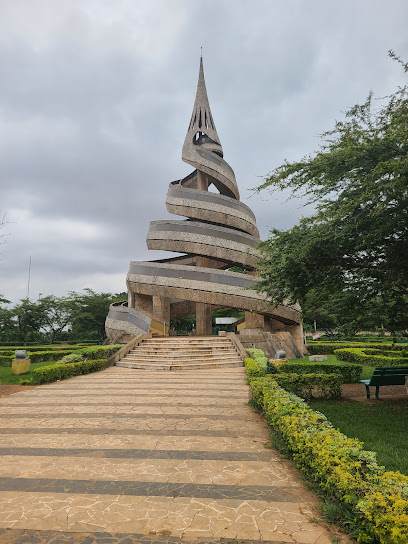
Cathedral of St Peter and Paul Bonadibong
Discover the architectural beauty and spiritual significance of Douala's iconic Cathedral of St Peter and Paul Bonadibong, a cultural and religious landmark.
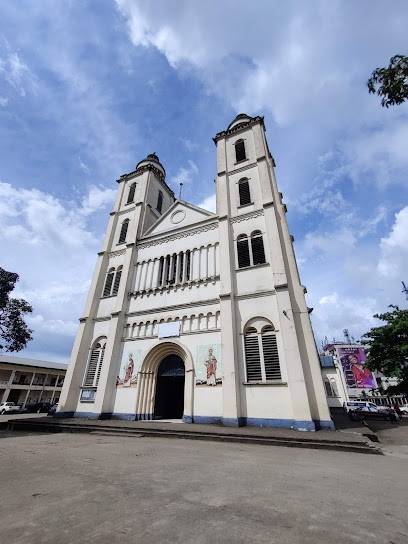
Ayos Centre
Discover Cameroonian art and culture at Ayos Centre in Foumban, a vibrant hub showcasing local artists and traditional craftsmanship.
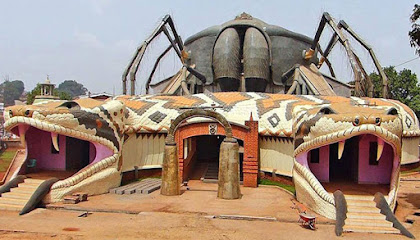
Maritime Museum Of Douala
Explore Cameroon's maritime history at the Douala Maritime Museum, featuring nautical artifacts, interactive exhibits, and insights into coastal culture.
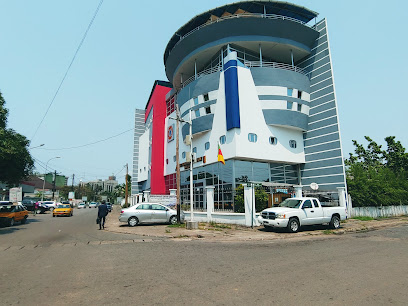
Doual'art
Explore contemporary African art at Doual'art in Douala, Cameroon: exhibitions, workshops, and urban art initiatives in the heart of the city's cultural scene.
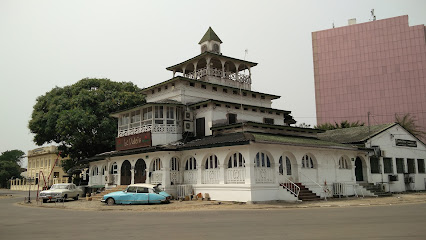
Limbe Wildlife Centre
Discover Cameroon's wildlife at the Limbe Wildlife Centre: A sanctuary for rescued primates and a hub for conservation education.
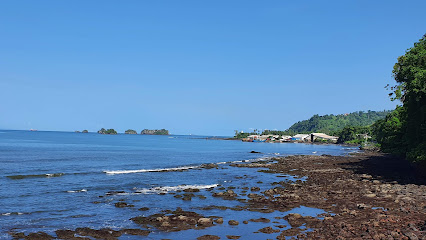
Limbe Botanic Garden
Discover Cameroon's natural beauty and colonial history at the Limbe Botanic Garden, a haven of biodiversity and tranquility.
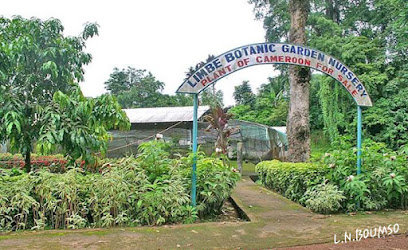
The Golden Jubilee Monument
A landmark in Buea commemorating Cameroon's 50th anniversary of independence, symbolizing unity, progress, and cultural heritage.
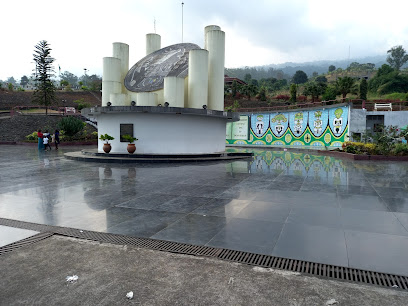
Statue of Charles Atangana
Discover the Statue of Charles Atangana in Yaoundé, a landmark honoring Cameroonian heritage and a key figure in its colonial history.
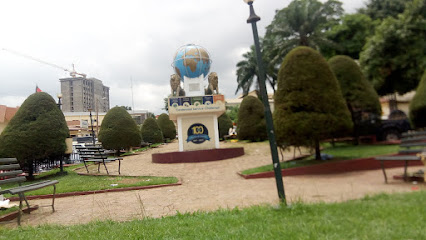
Round About Tiko
Escape to Round About Tiko: A serene park in Cameroon offering relaxation, nature, and a glimpse into local Tiko culture.
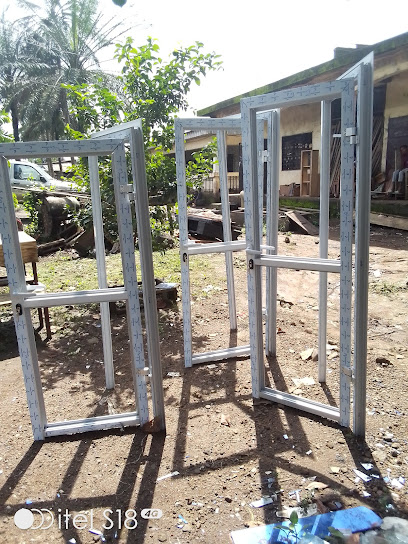
I love my country Cameroon round about
Experience Cameroonian pride at Yaoundé's 'I Love My Country' Round About: a vibrant hub of culture, art, and community spirit.
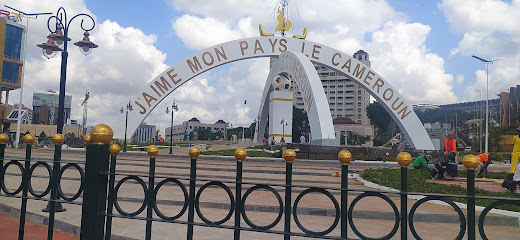
Monument Du Cinquantenaire De L'armée
Discover Douala's Monument Du Cinquantenaire De L'armée: A symbol of Cameroon's military history, surrounded by beautiful gardens and cultural experiences.
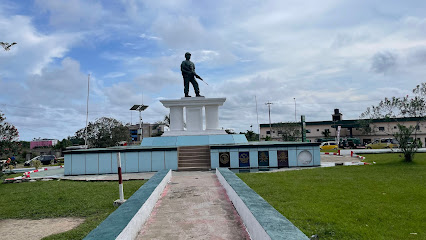
New Bell Mosque (ancienne étage) - Mosquée Quartier New Bell -Douala
Discover the architectural beauty and spiritual significance of Douala's New Bell Mosque, a cultural gem in the heart of Cameroon.
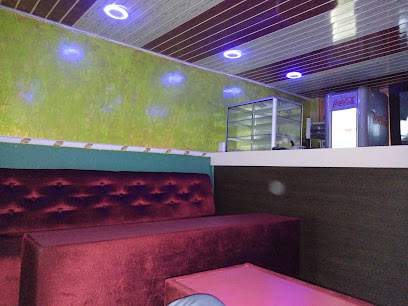
La Nouvelle Liberté
Experience the iconic La Nouvelle Liberté in Douala, a historical landmark that embodies freedom and cultural richness.
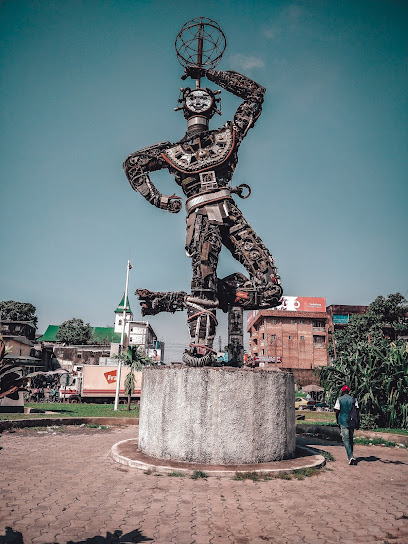
Unmissable attractions to see
Cathedral of St Peter and Paul Bonadibong
Explore the breathtaking Cathedral of St Peter and Paul Bonadibong in Douala, a stunning blend of architectural beauty and spiritual tranquility.
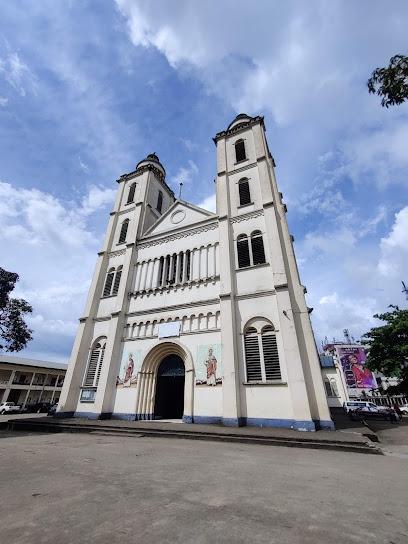
Maritime Museum Of Douala
Explore the Maritime Museum of Douala, a treasure trove of Cameroon’s rich maritime history and cultural heritage in the heart of Douala.
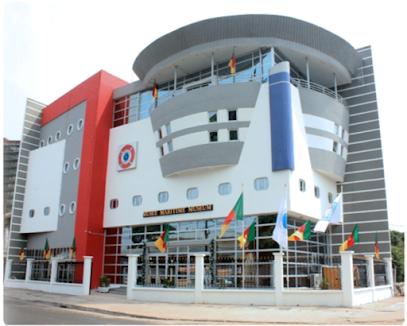
Doual'art
Discover the vibrant world of contemporary African art at Doual'art, Douala's premier cultural center and art museum.
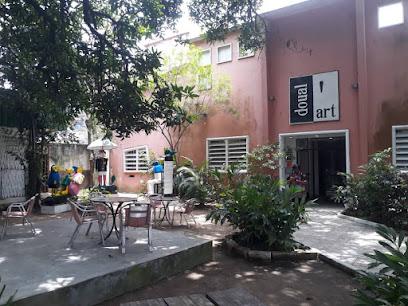
ALCEF PARK
Discover the perfect blend of nature and adventure at ALCEF Park, Limbe's premier destination for relaxation and fun!
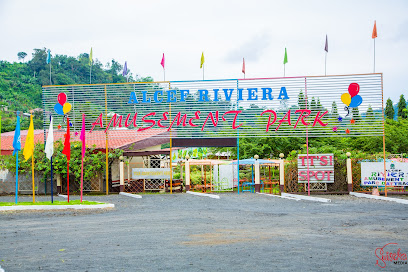
Mile 4 (Wututu Park)
Explore the lush landscapes and tranquil ambiance of Mile 4 Park (Wututu Park) in Moliwe—perfect for relaxation and outdoor activities.
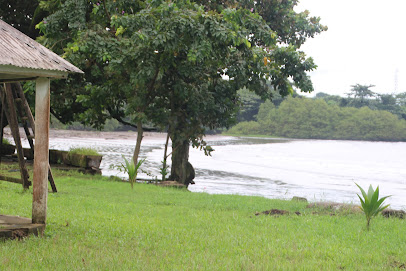
Limbe Botanic Garden
Explore the lush landscapes of Limbe Botanic Garden, a tropical paradise filled with diverse plant life, perfect for nature lovers and peaceful retreats.
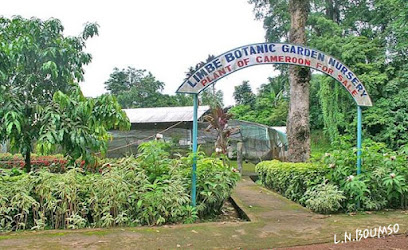
The Golden Jubilee Monument
Discover the Golden Jubilee Monument in Buea, a captivating tribute to Cameroon's heritage and resilience, perfect for history lovers and cultural enthusiasts.
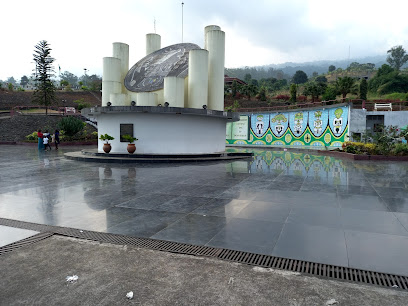
Mount Cameroon National Park
Explore the breathtaking landscapes and unique biodiversity of Mount Cameroon National Park, a top destination for adventure seekers and nature lovers in Cameroon.
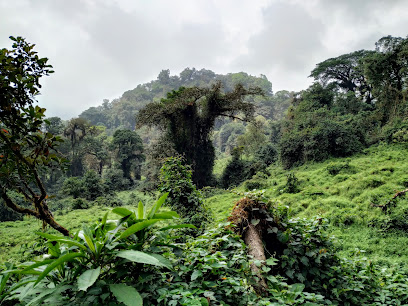
Point de Vue Base Navale
Discover breathtaking views of Douala's bustling waterfront at Point de Vue Base Navale, a premier tourist attraction in Cameroon.
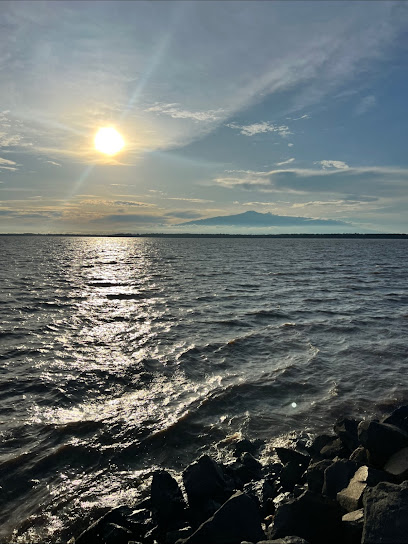
Les palétuviers
Experience the serene beauty of Les Palétuviers, a hidden gem along the Wouri River, perfect for nature lovers and peace seekers.
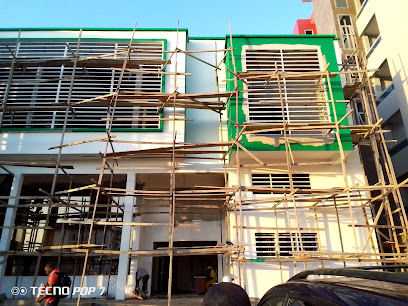
Bimbia Slave Trade Site
Explore the Bimbia Slave Trade Site, a poignant historical museum that unveils the truth about the transatlantic slave trade and its lasting impact on humanity.
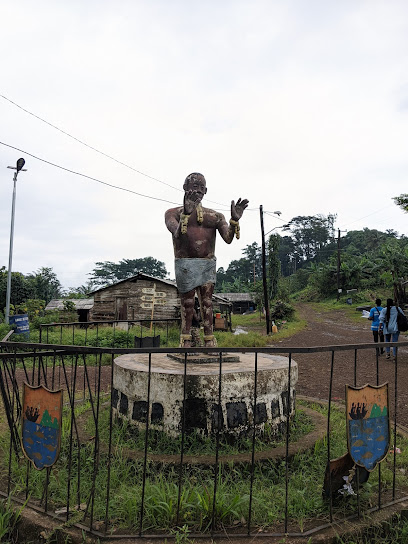
Hut 2 Mount Cameroon
Discover the breathtaking beauty and adventure at Hut 2 Mount Cameroon, a must-visit for nature lovers and hiking enthusiasts.
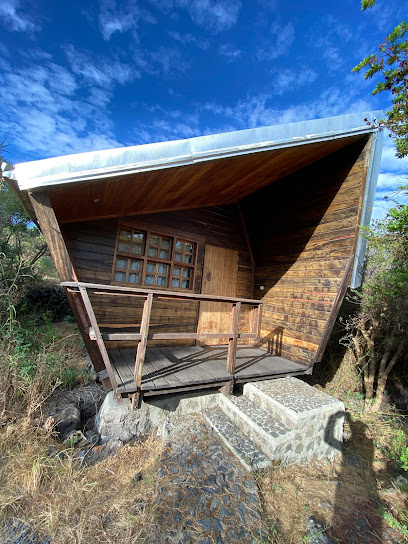
Les Cascades De Poupouma
Experience the breathtaking beauty of Les Cascades De Poupouma, a hidden gem in Cameroon with stunning waterfalls and lush greenery.

Sarah Etonge Foundation
Explore the Sarah Etonge Foundation in Buea: A vibrant cultural hub promoting community engagement and heritage preservation.
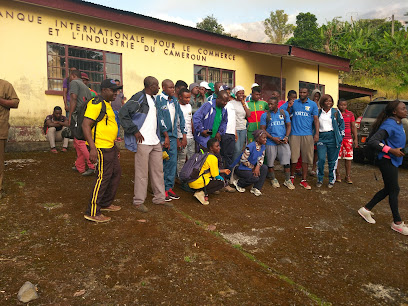
Our Lady of Grace Shrine,Sasse
Discover tranquility and spiritual solace at Our Lady of Grace Shrine in Buea, a serene tourist attraction nestled in the beautiful hills of Sasse.
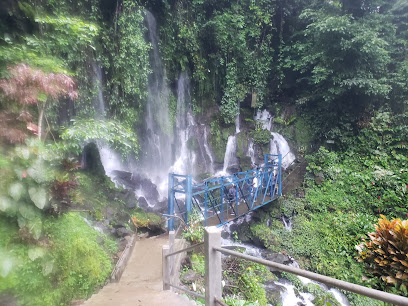
Essential places to dine
Big Bite
Experience delightful local cuisine with stunning ocean views at Big Bite in Limbe's beautiful Down Beach area.
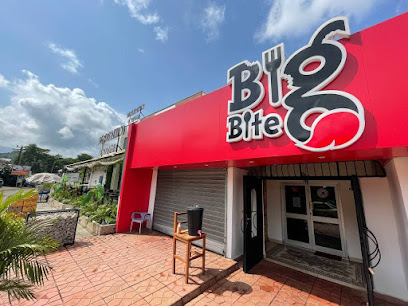
Sparkland Restaurant
Savor the best local and international cuisine at Sparkland Restaurant in Buea - where every dish tells a story.

BIGGIE CHOPS
Experience authentic Cameroonian flavors at Biggie Chops, where every dish tells a story of tradition and taste.
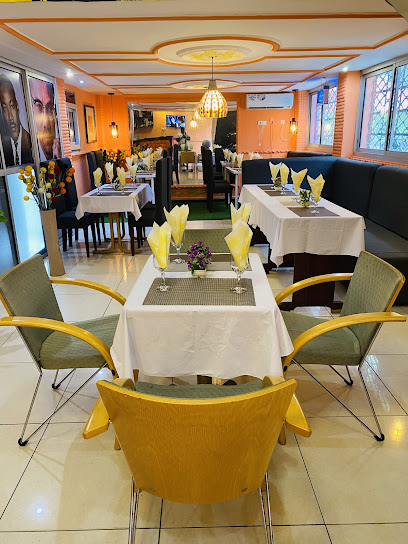
ARNE's Cafe
Discover a culinary haven at ARNE's Cafe in Limbe, where local flavors meet global cuisine amidst stunning coastal views.
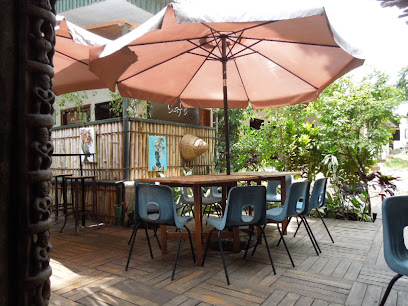
Restaurant Sengalaise Chez Fatima
Discover authentic Senegalese flavors at Restaurant Sengalaise Chez Fatima in Buea - a culinary journey not to be missed!
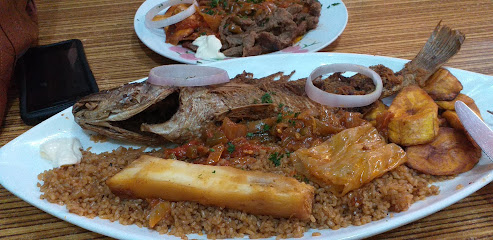
Abane & sons Corner
Discover authentic Cameroonian cuisine at Abane & Sons Corner in Limbe—where every meal tells a story.
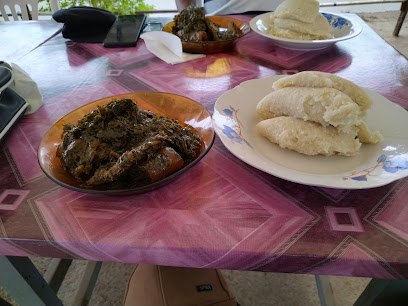
Pets Place- Bar And Restaurant
Discover the vibrant flavors of Tiko at Pets Place - Bar and Restaurant, where culinary delights meet local charm in an inviting atmosphere.

DADA Restaurant
Experience the authentic taste of Cameroon at DADA Restaurant in Limbe - where local flavors meet global cuisine.
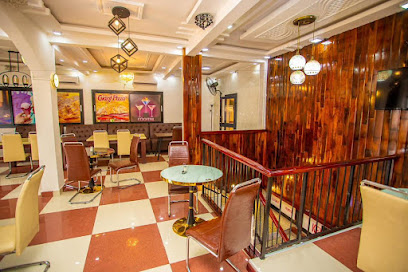
SS Club Tiko
Discover the unique flavors of Cameroon at SS Club Tiko – where local cuisine meets warm hospitality in a vibrant setting.
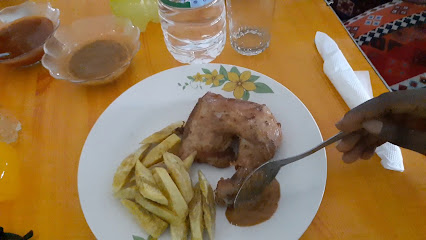
CONTINENTAL MEAL RESTAURANT
Experience authentic Cameroonian cuisine blended with international flavors at Buea's renowned Continental Meal Restaurant.
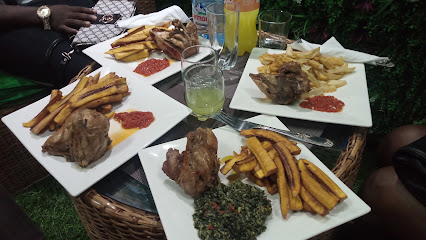
The Dorade restaurant
Discover fresh seafood and authentic Cameroonian cuisine at The Dorade Restaurant in Limbe - where every meal is a taste of coastal paradise.
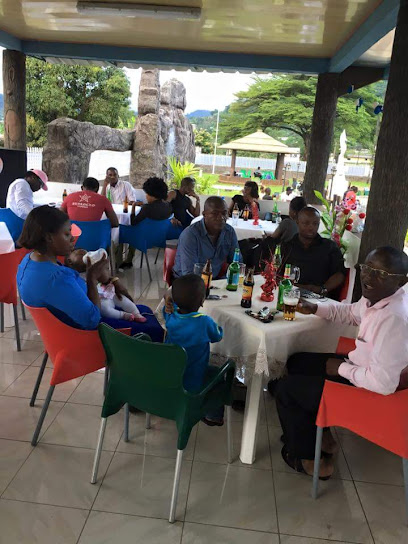
Kitchen Glory
Experience authentic flavors at Kitchen Glory in Limbe - where local meets international cuisine in a cozy setting.
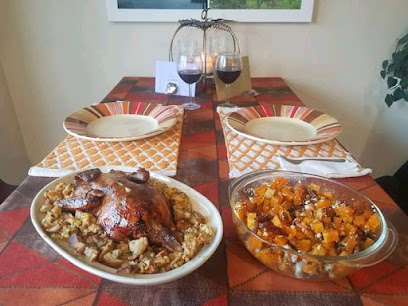
The LK Restaurant
Discover a culinary gem in Limbe at The LK Restaurant—where local flavors meet international cuisine in a vibrant atmosphere.
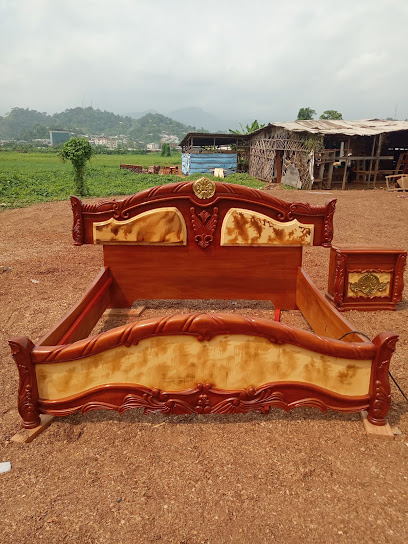
Randy's New World Restaurant
Experience authentic Cameroonian flavors at Randy's New World Restaurant in Limbe – where every meal tells a story.
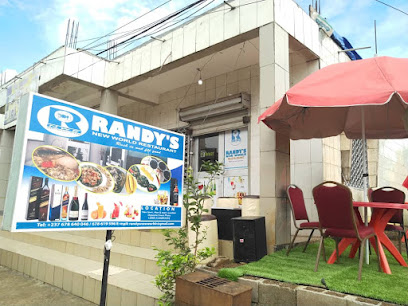
Berry's Restaurant
Experience authentic Cameroonian cuisine blended with international flavors at Berry's Restaurant in Limbe.
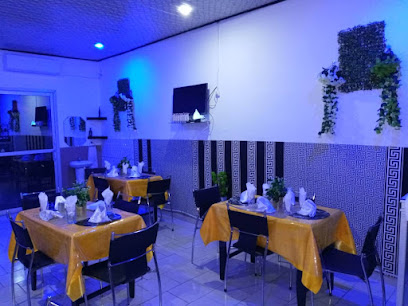
Markets, malls and hidden boutiques
Daliko Super Market
Experience the essence of Tiko at Daliko Super Market, where vibrant local culture meets a diverse selection of products for every traveler.
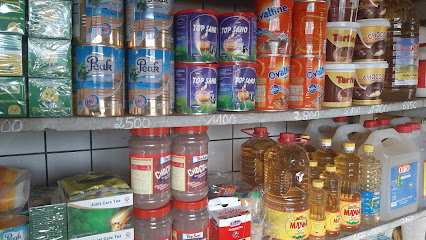
CDC TIKO RUBBER FACTORY
Explore the CDC Tiko Rubber Factory, where tradition meets innovation in Cameroon’s thriving rubber industry.
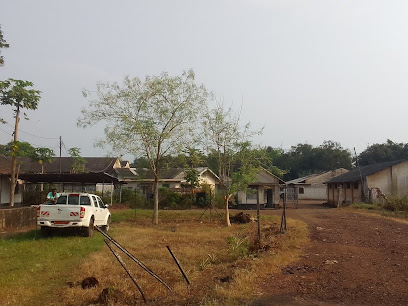
Total station shop
Experience the vibrant local culture at Total Station Shop, your go-to boutique in Buea for unique souvenirs and local delicacies.
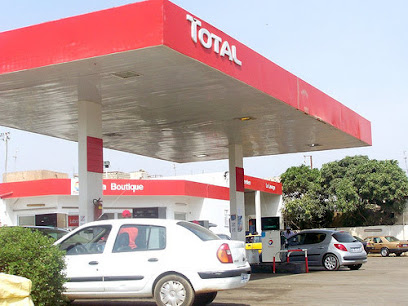
Puppies For Rehoming USA
Savor the sweet delights at Puppies For Rehoming USA Bakery, where every treat is a taste of Tiko's local flavor.

Faith Standard Pharmacy
Discover health and wellness at Faith Standard Pharmacy in Tiko, your trusted source for medications and expert advice during your travels.
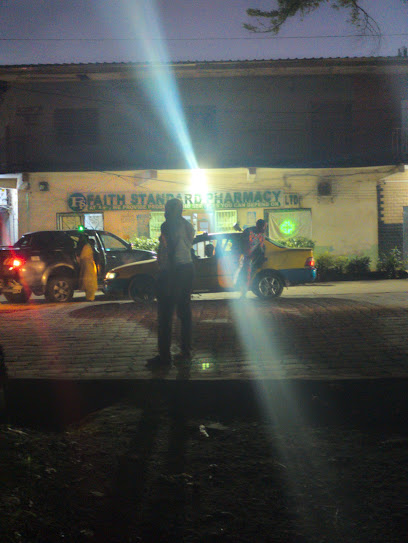
Ena. BGG Fashion
Discover a unique shopping experience at Ena. BGG Fashion in Tiko, where local culture meets contemporary fashion in a vibrant atmosphere.

Tiko main market
Experience the vibrant local culture at Tiko Main Market, a hub of fresh produce and artisan crafts in Tiko, Cameroon.

TIKO PHARMACY
Discover Tiko Pharmacy, your reliable partner for health supplies and advice while exploring the vibrant town of Tiko.

Zion Christian Center
Zion Christian Center in Mutengene: A Literary Sanctuary for Book Lovers and Explorers Seeking Inspiration.
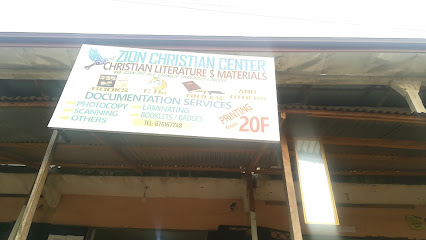
Family Store
Explore the vibrant Family Store in Tiko for unique shopping experiences, local crafts, and a taste of Cameroonian culture.
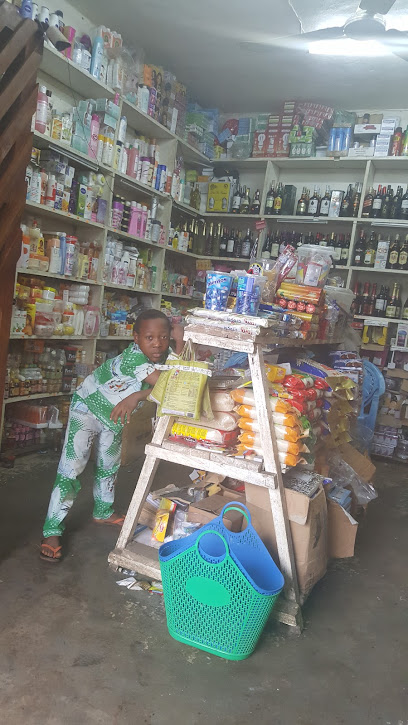
Njeiforbi bakery/supermarket Tiko
Discover fresh baked goods and local flavors at Njeiforbi Bakery in Tiko, a must-visit for every food lover.
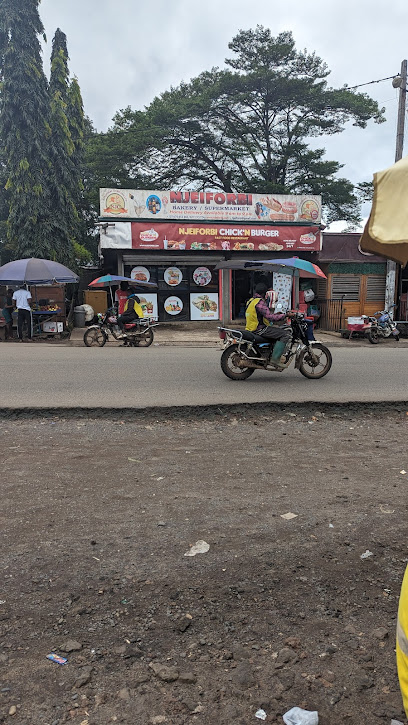
Pets Place Restaurant
Experience the authentic tastes of Tiko at Pets Place Restaurant, where fresh local ingredients meet traditional culinary delights.

Vida's Cakes and Desserts
Indulge in exquisite cakes and desserts at Vida's Cakes and Desserts, a sweet haven in Tiko, Cameroon, perfect for every occasion.

EA trading
Explore EA Trading in Buea for a unique second-hand shopping experience filled with vintage clothing, collectibles, and local charm.
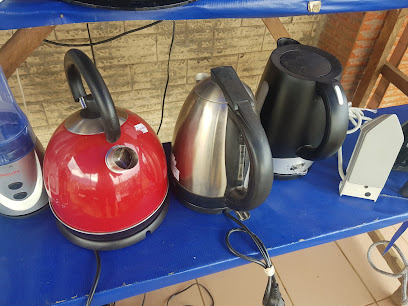
ESTHER-CAM Bakery
Experience the warmth and flavor of Tiko at ESTHER-CAM Bakery, where every pastry is a delightful treat waiting to be savored.

Essential bars & hidden hideouts
Ebony Snack Bar
Experience the vibrant nightlife of Buea at Ebony Snack Bar, where delicious snacks and refreshing drinks meet a lively atmosphere.
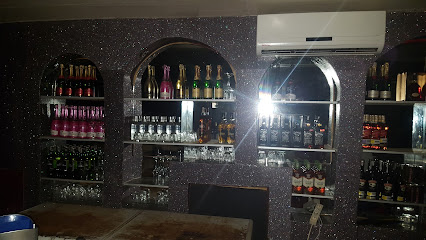
Pets Place- Bar And Restaurant
Discover a vibrant culinary scene at Pets Place - Bar And Restaurant, where delicious meals and a welcoming atmosphere await in Tiko.

SS Club Tiko
Experience the rich flavors of Tiko at SS Club Tiko, where local ingredients meet vibrant culinary creativity in a delightful setting.
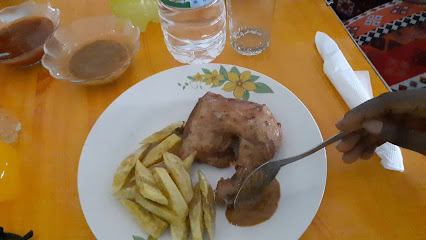
Telepodium Club
Discover the lively atmosphere of Telepodium Club, a bar in Mutengene, where vibrant nightlife meets local culture and great drinks.

Tokyo matutu spot
Discover the vibrant nightlife at Tokyo Matutu Spot, a lively bar in Tiko offering local drinks and a welcoming atmosphere for all.

Down Beach Bar
Experience the vibrant atmosphere and refreshing drinks at Down Beach Bar in Mutengene, your perfect tropical getaway.
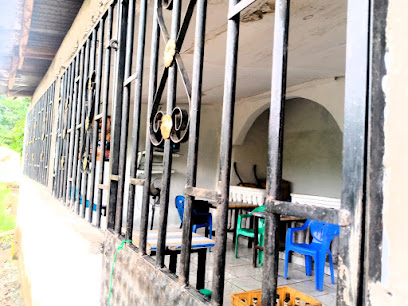
Bamboo Magic Bar
Discover the charm of Bamboo Magic Bar in Moliwe, where relaxation meets vibrant local culture and a unique ambiance awaits you.
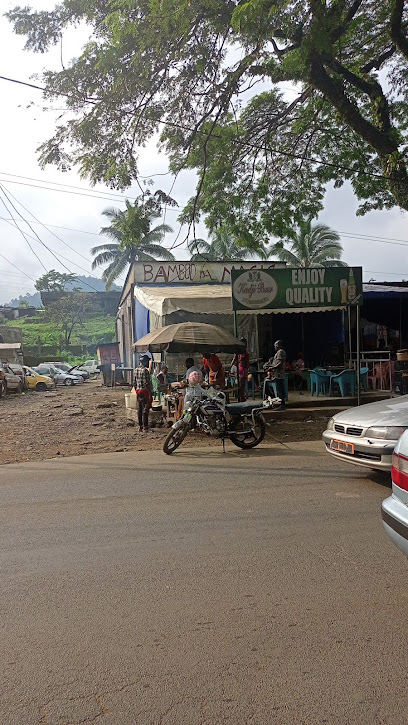
Toristic Snack Bar
Discover the delicious flavors and vibrant culture at Toristic Snack Bar in Tiko, where locals and tourists come together to enjoy great food and drinks.

Marina Lounge And Dining
Experience the vibrant atmosphere and delicious offerings at Marina Lounge and Dining in Buea, where relaxation meets local culture.
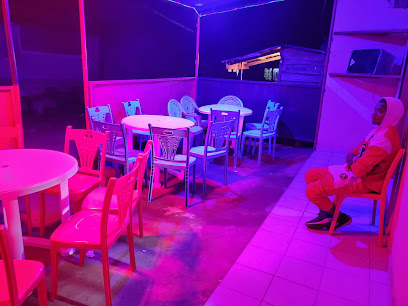
Kumbo Striker's
Discover the vibrant nightlife at Kumbo Striker's in Mutengene, where local flavors meet a welcoming atmosphere for an unforgettable bar experience.

Black rapen
Discover the vibrant nightlife and local drinks at Black Rapen, the heart of Tiko's bar scene, where every visit is a celebration of culture.

One corner Bar
Experience the vibrant local nightlife at One Corner Bar in Tiko, where drinks, music, and camaraderie await.

Back Crystalline
Experience the flavors of Tiko at Back Crystalline, where traditional cuisine meets modern dining in a warm, inviting atmosphere.
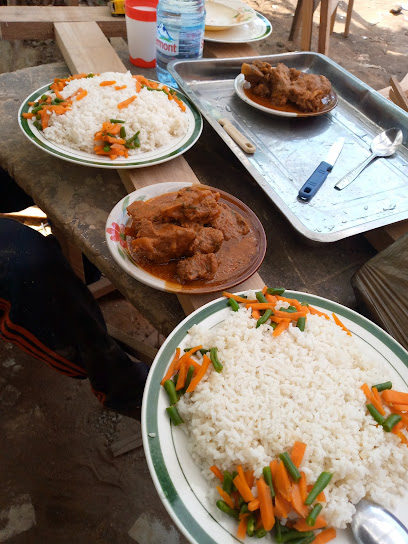
Timbuktu Wines and whiskeys
Experience the vibrant nightlife of Buea with a unique selection of wines and whiskeys at Timbuktu Wines and Whiskeys, your go-to bar in the heart of the city.
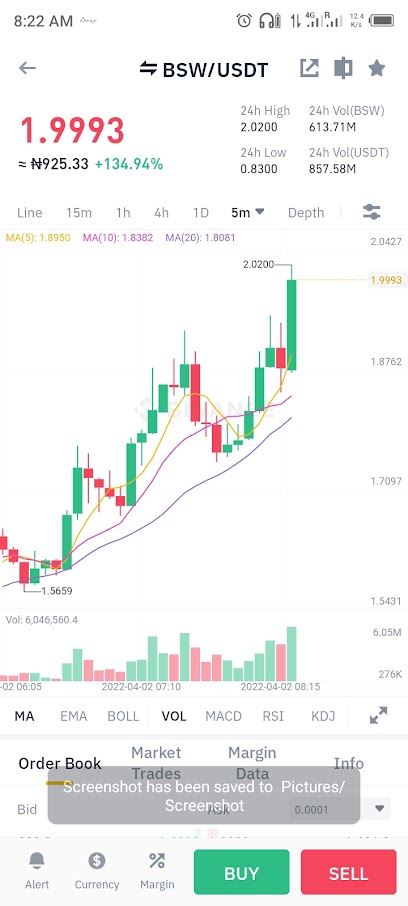
Local Phrases
-
- HelloBuea
[Bway-ah] - GoodbyeBakwe
[Bah-kway] - YesEya
[Ay-yah] - NoAyi
[Ah-yee] - Please/You're welcomeKop
[Kohp] - Thank youSema
[Say-mah] - Excuse me/SorryPardon
[Pahr-don] - How are you?Wey you dey?
[Weh yoo dey] - Fine. And you?Fine. Na you?
[Feen. Nah yoo] - Do you speak English?You sabi English?
[Yoo sah-bee English] - I don't understandI no sabi
[Ee no sah-bee]
- HelloBuea
-
- I'd like to see the menu, pleaseNa menu I want see, abeg
[Nah meh-noo ee want see, ah-beg] - I don't eat meatI no chop meat
[Ee no ch-ohp meat] - Cheers!Cheers!
[Cheers] - I would like to pay, pleaseNa pay I want pay, abeg
[Nah pay ee want pay, ah-beg]
- I'd like to see the menu, pleaseNa menu I want see, abeg
-
- Help!Secours!
[Seh-coors] - Go away!Garde!
[Gahr-day] - Call the Police!Appelle Police!
[Ah-pell Police] - Call a doctor!Appelle docteur!
[Ah-pell doct-ur] - I'm lostI loss
[Ee loss] - I'm illI sick
[Ee sick]
- Help!Secours!
-
- I'd like to buy...Na buy I want buy...
[Nah buy ee want buy...] - I'm just lookingI dey look
[Ee dey look] - How much is it?Na how much?
[Nah how much] - That's too expensiveE too cost
[Eh too cost] - Can you lower the price?You fit reduce price?
[Yoo fit reh-dooce price]
- I'd like to buy...Na buy I want buy...
-
- What time is it?Na which time?
[Nah which time] - It's one o'clockNa one e do
[Nah wun eh doh] - Half past (10)Half (10) don waka
[Hahf (10) dohn wah-kah] - MorningMorning
[Morn-ing] - AfternoonAfternoon
[After-noon] - EveningEvening
[Eh-ven-ing] - YesterdayLatsi
[Laht-see] - TodayToday
[Toh-day] - TomorrowTomoro
[Toh-moh-roh] - 11
[1] - 22
[2] - 33
[3] - 44
[4] - 55
[5] - 66
[6] - 77
[7] - 88
[8] - 99
[9] - 1010
[10]
- What time is it?Na which time?
-
- Where's a/the...?Waytin dey...?
[Weh-teen dey] - What's the address?Na which place?
[Nah which pl-ah-c-eh] - Can you show me (on the map)?You fit show me?
[Yoo fit show me] - When's the next (bus)?When bus go come?
[When bus goh come] - A ticket (to ....)Ticket (go...)
[Ticket go]
- Where's a/the...?Waytin dey...?
History of Tiko
-
Tiko's history is deeply intertwined with the colonial history of Cameroon. Initially, the region was under German control from the late 19th century until World War I. During this period, Tiko developed as a significant port and commercial center, facilitating the export of goods such as bananas, rubber, and palm oil.
-
Following Germany's defeat in World War I, the League of Nations mandated Tiko, along with the rest of Southern Cameroon, to British administration. This period saw the expansion of the port facilities and the introduction of new agricultural practices, which further boosted the region's economic significance.
-
In 1961, after a plebiscite, Southern Cameroon, including Tiko, chose to reunite with the Republic of Cameroon, which had gained independence from France in 1960. This reunification marked a significant turning point in Tiko's history, as it began to integrate into the broader socio-economic framework of the newly independent nation.
-
Throughout the latter half of the 20th century, Tiko continued to grow as an economic hub. The establishment of the Tiko Airport and the improvement of road networks facilitated better connectivity and trade. The region became known for its agricultural productivity, especially in the cultivation of bananas and tea.
-
Tiko is a melting pot of cultures, reflecting its diverse population. The indigenous Bakweri people have a rich cultural heritage, including traditional dances, music, and festivals. The annual Ngondo Festival, celebrated by the Sawa people, is a significant cultural event that showcases the region's vibrant traditions.
-
Today, Tiko is a bustling town that balances its historical legacy with modern development. The town's markets, such as the Tiko Market, are vibrant centers of activity where one can experience the local way of life. Additionally, Tiko's strategic location near the Gulf of Guinea continues to make it an important node for trade and commerce in Cameroon.
Tiko Essentials
-
Tiko is accessible primarily via the Douala International Airport (DLA), which is about 60 kilometers away. From the airport, you can hire a taxi or take a bus to Tiko. The journey typically takes around 1 to 1.5 hours by road, depending on traffic conditions. Alternatively, you can also reach Tiko by train from Douala or Yaoundé, which offers a scenic route through the Cameroonian countryside.
-
Tiko is a relatively small town, and many attractions are within walking distance. For longer trips, local taxis and motorcycle taxis (locally known as 'benskins') are readily available and inexpensive. Public buses and minibuses (known as 'bush taxis') operate within the town and connect to nearby areas. Renting a car can also be an option, but be prepared for varying road conditions.
-
The official currency in Cameroon is the Central African CFA Franc (XAF). Credit cards are accepted in some hotels, restaurants, and shops, but it is advisable to carry cash, especially in smaller establishments and more rural areas. ATMs are available in Tiko, but it's wise to withdraw sufficient cash in Douala or Yaoundé to ensure you have enough funds.
-
Tiko is generally a safe destination for tourists. However, like any travel destination, standard precautions should be taken. Avoid walking alone at night in unfamiliar areas and keep an eye on your belongings in crowded places. Some neighborhoods may have higher crime rates, so it's best to stay informed and ask locals or your accommodation for advice on areas to avoid.
-
In case of emergency, dial 117 for police assistance, 118 for fire service, and 119 for medical emergencies. The local police station and hospital are available in Tiko. It's recommended to have travel insurance that covers medical emergencies. For minor health issues, pharmacies in the town can provide over-the-counter medications.
-
Fashion: Do dress modestly, especially when visiting religious sites. Avoid wearing overly revealing clothing. Religion: Do respect local customs and traditions. When entering churches or mosques, dress appropriately and follow any specific guidelines. Public Transport: Do be respectful and considerate to other passengers. Don’t eat or drink on public transport. Greetings: Do greet people with a handshake and a smile. A slight bow of the head can also show respect. Eating & Drinking: Do try local delicacies and accept food offerings graciously. Don’t refuse hospitality, as it is considered impolite.
-
To experience Tiko like a local, visit the local markets where you can buy fresh produce and traditional Cameroonian goods. Engage with locals, as they are often friendly and willing to share stories about the town's history and culture. Don’t miss visiting the Tiko Golf Club, which offers a unique golfing experience in Cameroon. For a relaxing day, take a trip to the nearby Limbe Botanical Garden and Wildlife Centre.
Trending Landmark in Tiko
-
Rond-Point Deido
-
Cameroon Reunification Monument
-
Cathedral of St Peter and Paul Bonadibong
-
Ayos Centre
-
Maritime Museum Of Douala
-
Doual'art
-
Limbe Wildlife Centre
-
Limbe Botanic Garden
-
The Golden Jubilee Monument
-
Statue of Charles Atangana
-
Round About Tiko
-
I love my country Cameroon round about
-
Monument Du Cinquantenaire De L'armée
-
New Bell Mosque (ancienne étage) - Mosquée Quartier New Bell -Douala
-
La Nouvelle Liberté
Nearby Cities to Tiko
-
Things To Do in Buea
-
Things To Do in Limbe
-
Things To Do in Douala
-
Things To Do in Malabo
-
Things To Do in Edea
-
Things To Do in Luba
-
Things To Do in Nkongsamba
-
Things To Do in Kribi
-
Things To Do in Calabar
-
Things To Do in Dschang
-
Things To Do in Mamfe
-
Things To Do in Uyo
-
Things To Do in Bafoussam
-
Things To Do in Mbouda
-
Things To Do in Bafia





